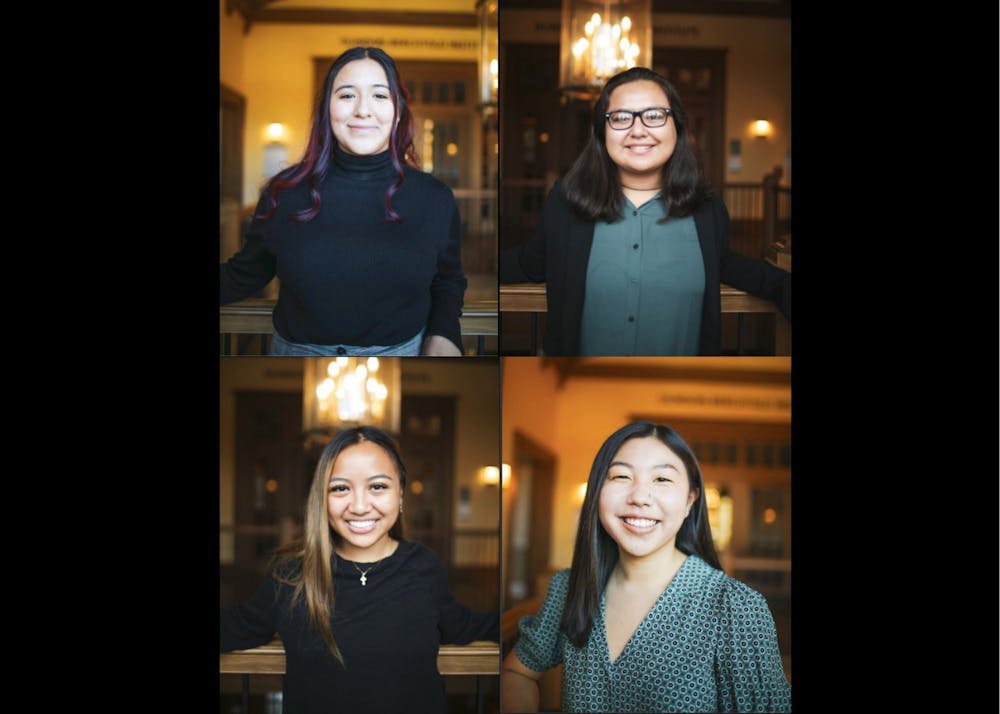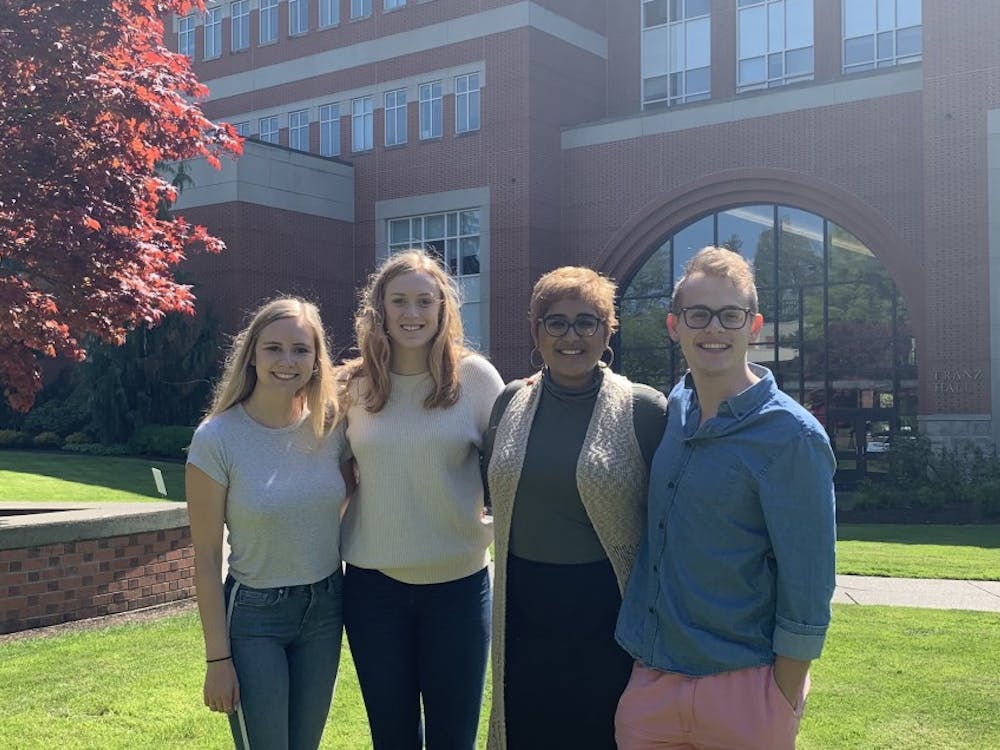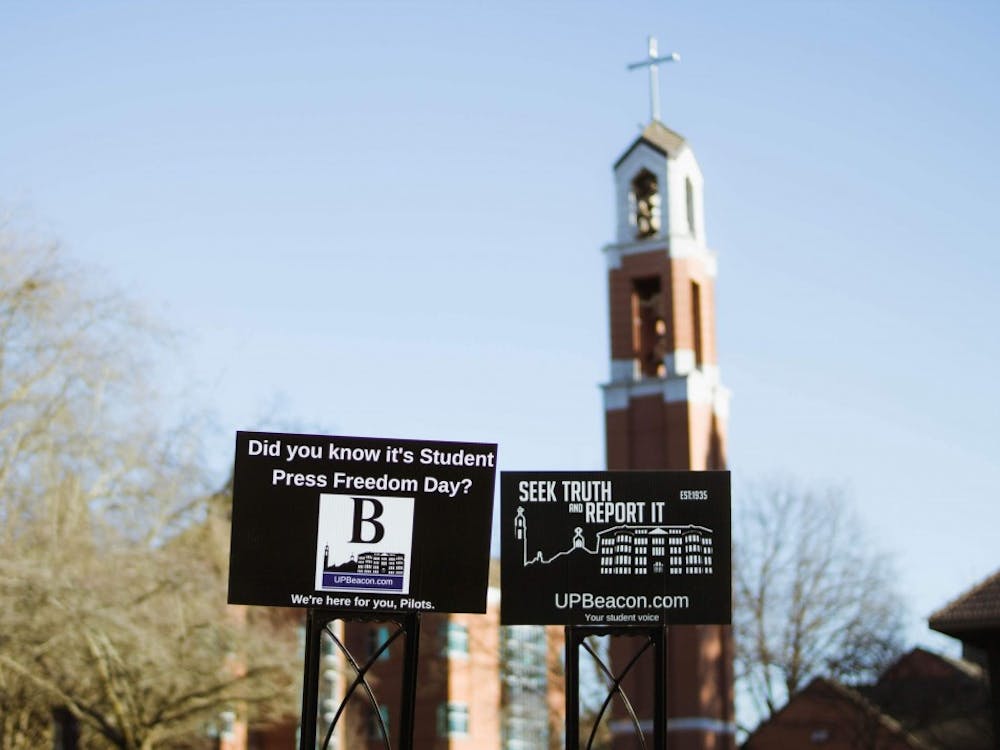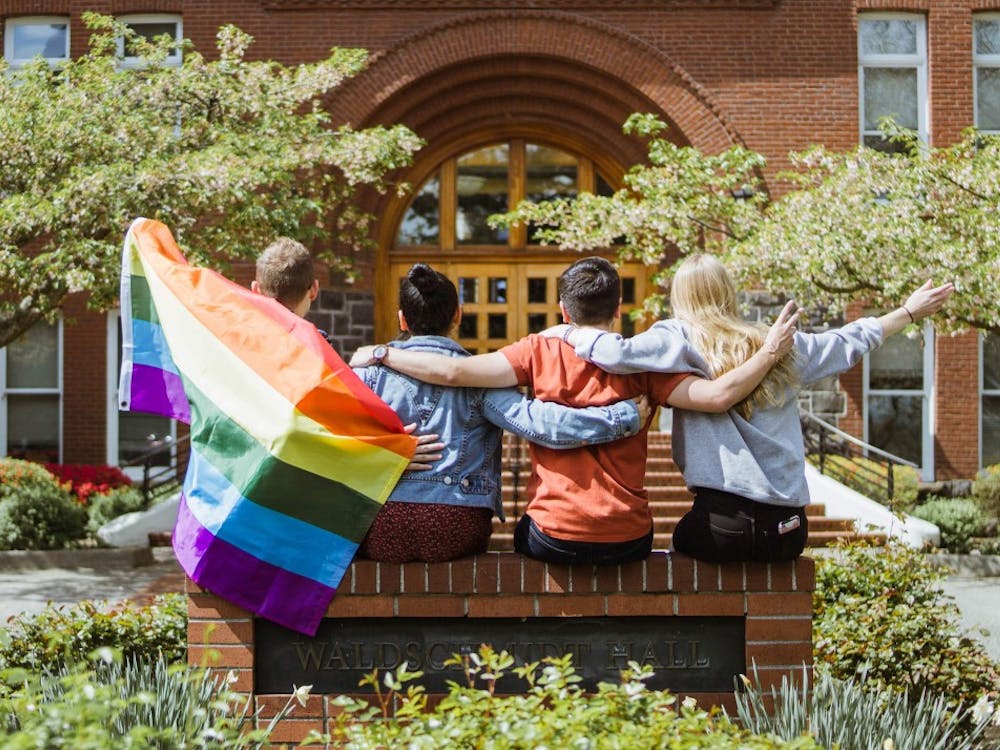If you’ve ever attended Día de los Muertos, Pilots Paint or a Diversity Dialogues event, then you’ve been to an event hosted by Diversity and Inclusion Programs (DIP). To clarify, DIP is not a club; DIP is a department under Student Activities that strives to educate and engage the UP community on issues, topics, and events related to diversity, equity, and inclusion. You can learn more about DIP here.
And as for us? We are diversity collaborators here on campus that work for DIP. As student workers, we help plan events and programs to help create a welcoming campus environment and highlight diversity, equity, and inclusion here on campus. As part of fulfilling that role, we helped plan Diversity Dialogues, two weeks full of programming that, this year, targeted issues and topics such as environmental sustainability, racial disparities in healthcare, cultural workshops, interfaith dialogues, and much more. It was the first year for all of us helping with Diversity Dialogues as diversity collaborators, and we wish to share some reflections on how these events can continue important and relevant conversations outside of the UP community.
As for me, my name is Carolina Cortes, and I am a psychology major with minors in political science and Spanish. While this has been my second year participating in Diversity Dialogues as cabinet leadership of La Mesa Redonda, this has been my first year supporting Diversity Dialogues behind the scenes as a diversity collaborator. One of the most rewarding things of being a diversity collaboration was seeing the preparation process for every event. Preparation begins as early as the last few weeks of fall semester, where we begin inviting clubs, organizations and departments to participate and brainstorm ideas. Most of the events are student-led, and I was inspired to see their passion for starting and continuing important conversations. Diversity Dialogues only lasts two weeks, but during those two weeks, this university sees students, faculty and community members who are doing the necessary work to make inclusive spaces and push for important changes in their communities. Additionally, even the most minor details are intentional, such as the spaces that they were hosted in to be accessible to everyone and having authentic food as a celebration of the diverse communities at the University of Portland. For those who want to become involved with a club, or simply learn more about an issue they are curious about, Diversity Dialogues offers a welcoming space to do so, because those two weeks are all about learning and spreading knowledge. We always invite clubs, departments, and other community members to become involved in Diversity Dialogues or other events. And of course, this work cannot be done alone. Twenty events within two weeks are not the cheapest endeavor. Having authentic food, organizing giveaways, and bringing speakers onto campus, such as D’Lo, highlights the need for adequate funding. As this university strives for a more diverse, equitable, and inclusive environment, it must also demonstrate the financial commitment for diversity, equity, and inclusion. It must also be said that this is not a new topic of interest, and it is important to recognize the financial commitments it takes to build Diversity Dialogues.
My name is Jayla Fernandez and I am a sophomore nursing major. I think holding programming such as Diversity Dialogues is imperative for this campus. Giving minoritized students on campus a safe place to speak about their truths and hardships gives them the opportunity to feel like they have a place and voice here on campus. In my first year working on Diversity Dialogues, it was a very rewarding experience. In all honesty, it was very hard work for this team putting on all these events. However, seeing the impact these events have made on students have made me realize that it was all worth it. I believe that it’s important that as a campus, we make an effort to provide support and acknowledgment to students who feel excluded. This university is considered to be a second home for some of us, and in knowing this, we should all feel loved and respected. Going into the future, I hope to see more clubs and departments become more involved in Diversity Dialogues.
My name is Dani Perez Vargas, I am currently a sophomore Spanish major with a French minor looking to pursue a career in health care. Being a student of color, seeing such a long spree of events here on campus that are targeted towards oppressed communities is genuinely an exciting time as a UP student. Diversity Dialogues opened conversations for students, staff and faculty alike to explore topics that are otherwise not discussed on this campus. Giving clubs a voice to sponsor such events brings light to the discrimination and disparities some students on campus may face daily that others don’t encounter at all. It truly was an eye-opening experience to see all the club leaders take such initiative in creating their events to express their passions for the group they were representing. Diversity Dialogues is a time to continue sensitive conversations and break down barriers and myths that are otherwise left unattended. This 20-event long stretch is not for the clubs who host them, but for clubs to spread their wealth of knowledge to those who would like to educate themselves and start a dialogue on topics of inclusiveness. I hope to see more students, clubs, and departments participate in moving forward. DIP is a great asset to the UP community. Specifically, for the students of color who often feel misplaced, unrecognized and unsupported here at UP. Just like any other department on campus, DIP deserves to be funded to allow for expansion and creation of new events. The DIP department (previously known as Multicultural Programming) has not had an increase in funding since it was first established, 15 years ago. It is insane that minoritized and student communities of color are growing and being promoted on campus, but the funding for departments that support these communities do not. DIP and Diversity Dialogues works, we know from student feedback that it is creating positive change. What we need to continue to create spaces for safe and open conversation is institutional funding and investment.
My name is Peytynn Kubo and I am a first-year student and social media handler for Diversity and Inclusion Programs. With it being my first year as a diversity collaborator, I was overwhelmed by the amount of student participation and was moved by the celebration of the different communities represented here on campus. I was fortunate to have been an active participant with the organizing and promotional aspects of Diversity Dialogues. As social media coordinator, I was able to interact and work with many student leaders. It was truly an amazing experience to have been able to gain perspective of their visions and the important messages they wanted attendees to take away from each event. The passion that the students possessed could not be contained, as I was blown away by the commitment and devotion it took to organize these events and bring people from all backgrounds together. Although Diversity Dialogues has come to an end, it is vital that we keep the flow of conversation going. Why stop when we’re just getting started? We all come from different lines of heritage and identify with different communities, yet share strands of emotion and history that deeply influence and connect us all. We all encourage you to join us as we continue to educate ourselves and use our voices to promote a more inclusive community for all!
The authors are diversity collaborators at the University of Portland. They can be reached at
cortesc21@up.edu, fernajay22@up.edu, perezvar22@up.edu , and kubo23@up.edu.








